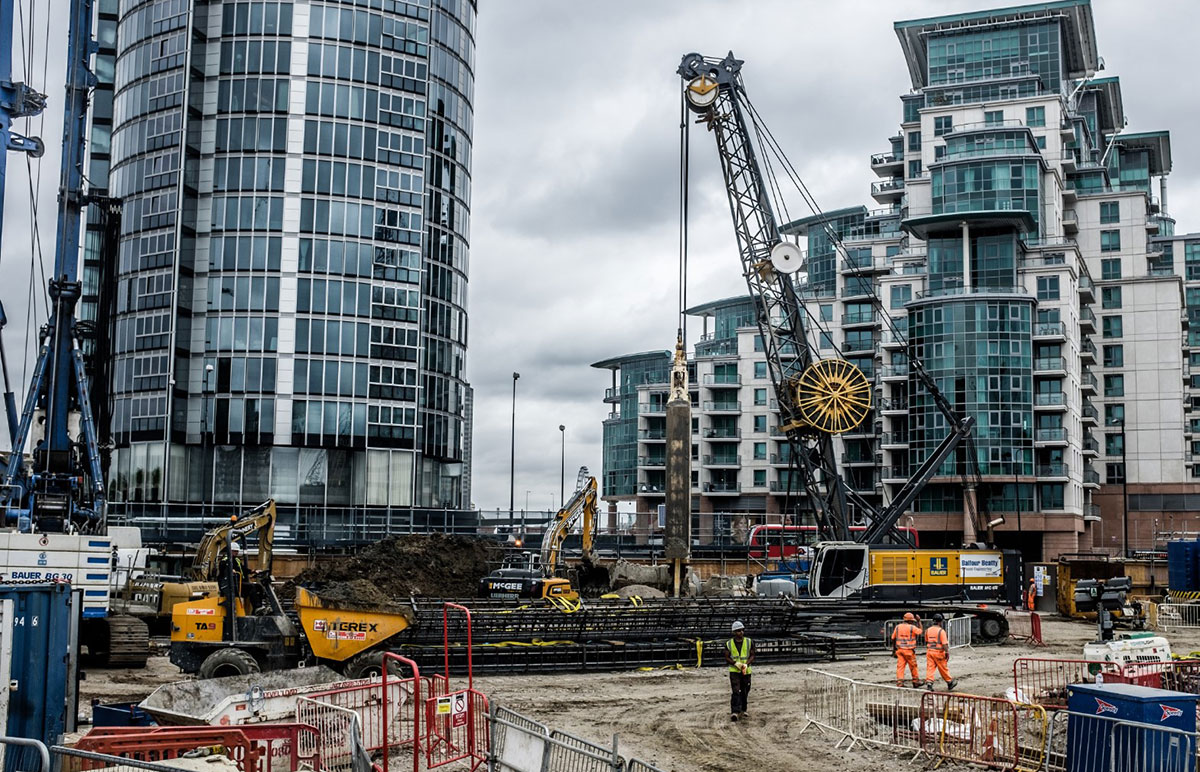The Best Guide To Geotheta
The Best Guide To Geotheta
Blog Article
Not known Facts About Geotheta
Table of ContentsSome Known Details About Geotheta Some Known Details About Geotheta Getting The Geotheta To WorkGeotheta - The FactsGeotheta Fundamentals Explained

They conduct site examinations, collect examples, perform lab examinations, and analyze data to review the viability of the ground for construction jobs - Engineer of Record. Based on their findings, geotechnical engineers offer suggestions for structure layout, slope stability, maintaining frameworks, and mitigation of geotechnical risks. They work together with other experts, such as designers, structural engineers, and building teams, to make sure that geotechnical considerations are integrated into the general job style and application
By examining the habits and residential or commercial properties of soil and rock, they can identify potential geotechnical hazards such as landslides, soil settlement, or incline instability. Their proficiency aids stop failures or accidents that can endanger lives and home. Right here are some thorough obligations and duties of a geotechnical designer: Site Investigation: Geotechnical designers conduct website examinations to collect data on subsurface problems.
They analyze the information to understand the residential or commercial properties and actions of the soil and rock, including their strength, permeability, compaction features, and groundwater conditions. Geotechnical Analysis and Layout: Geotechnical designers assess the data accumulated throughout website investigations to analyze the security and viability of the website for building tasks. They carry out geotechnical calculations and modeling to examine aspects such as birthing capacity, settlement, slope stability, lateral planet pressures, and groundwater circulation.
Getting The Geotheta To Work
Foundation Design: Geotechnical designers play an important duty in designing structures that can safely support the intended structure. They analyze the soil problems and load demands to figure out the proper foundation type, such as shallow foundations (e.g., footings), deep foundations (e.g (https://www.openstreetmap.org/user/geotheta)., heaps), or specialized techniques like soil renovation. They think about elements such as settlement restrictions, birthing capability, and soil-structure communication to establish optimum structure layouts
They examine building and construction strategies, display website activities, and perform area examinations to verify that the style referrals are followed. If unforeseen geotechnical problems emerge, they analyze the scenario and offer suggestions for remediation or changes to the style. Risk Assessment and Reduction: Geotechnical engineers assess geotechnical risks and threats linked with the project site, such as landslides, liquefaction, or dirt erosion.

Partnership and Communication: Geotechnical engineers function carefully with various other specialists included in a task, such as designers, structural designers, and building and construction teams. Effective communication and cooperation are vital to incorporate geotechnical factors to consider right into the overall task layout and building and construction procedure. Geotechnical designers offer technological know-how, response questions, and make certain that geotechnical requirements are met.
Little Known Questions About Geotheta.
Below are some kinds of geotechnical designers: Foundation Designer: Structure designers focus on creating and examining foundations for frameworks. They evaluate the soil problems, lots needs, and site characteristics to establish the most proper structure type and design, such as superficial foundations, deep foundations, or specialized methods like heap structures.
They examine the factors affecting incline security, such as soil buildings, groundwater problems, and incline geometry, and create approaches to protect against incline failures and reduce risks. Quake Engineer: Earthquake designers specialize in evaluating and creating structures to withstand seismic forces. They analyze the seismic threat of a website, evaluate dirt liquefaction potential, and create seismic style standards to make sure the safety and durability of structures during earthquakes.
They carry out area screening, accumulate samples, and assess the gathered data to characterize the dirt buildings, geologic developments, and groundwater problems at a site. Geotechnical Instrumentation Engineer: Geotechnical instrumentation designers concentrate on tracking and measuring the habits of dirt, rock, and structures. They mount and preserve instrumentation systems that monitor aspects such as dirt settlement, groundwater levels, incline movements, and structural displacements to assess efficiency and provide very early cautions of potential concerns.
Examine This Report about Geotheta
They perform tests such as triaxial tests, loan consolidation tests, straight shear examinations, and leaks in the structure tests to gather information for geotechnical analysis and layout. Geosynthetics Engineer: Geosynthetics designers specialize in the style and application of geosynthetic products, such as geotextiles, geogrids, and geomembranes. They use these materials to boost soil stability, enhance slopes, supply water drainage solutions, and control erosion.
They often tend to be investigatory individuals, which implies they're intellectual, reflective, and inquisitive. They are interested, systematic, rational, analytical, and rational. A few of them are additionally social, meaning they're kind, generous, cooperative, client, caring, handy, empathetic, tactful, and friendly. Does this noise like you? Take our complimentary job examination to learn if geotechnical engineer is one of your top occupation matches.
In the office atmosphere, geotechnical engineers make use of specialized software program devices to carry out computations, create layouts, and examine data. They prepare reports, testimonial task Full Report specs, communicate with customers and employee, and coordinate task tasks. The office setting gives a favorable environment for study, evaluation, and partnership with various other specialists associated with the job.
Some Known Facts About Geotheta.
They regularly go to task sites to perform site examinations, evaluate geotechnical problems, and gather information for evaluation. These brows through include traveling to different places, in some cases in remote or tough terrains. Geotechnical engineers may do dirt sampling, conduct tests, and display building tasks to ensure that the geotechnical elements of the task are being implemented properly.
Geotechnical engineers also work in specialized geotechnical labs. Geotechnical lab engineers work extensively in these environments, dealing with testing equipment, operating instruments, and tape-recording data.
Report this page